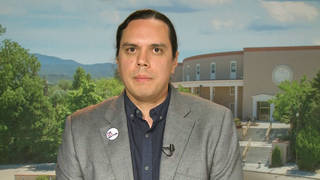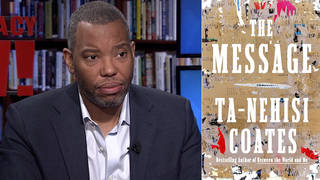Army officials apologized on Monday for the deplorable conditions at the Walter Reed Army Medical Center. Army Surgeon General Lt. Gen. Kevin Kiley told a congressional panel that housing conditions did not meet the Army’s standards. But Henry Waxman, the chair of the Oversight and Government Reform Committee, called the situation at Walter Reed the tip of the iceberg of what is going on at Army medical facilities around the country. A group of injured veterans and relatives testified on Monday before Congress.
Army Specialist Jeremy Duncan: “The conditions in the room, in my mind, it was just unforgivable for anybody … it wasn’t fit for anybody to live like that. I know most soldiers have — they’ve just come out of recovery, they have weaker immune systems. Black mold can do damage to people. The holes in the walls… I wouldn’t live there, even if I had to.”
Annette McLeod, the wife of Corporal Wendell McLeod, also testified.
Annette McLeod: “All I’m trying to do is have my life, the life that I had and I know. My life was ripped apart the day that my husband was injured. But having to live through the mess that we lived through at Walter Reed has been the worst thing I ever sacrificed in my life.”
Staff Sgt. John Daniel Shannon urged Army officials to improve its treatment of soldiers who are returning from Iraq with psychological problems
Staff Sgt. Shannon: “They have discovered that men suffer post-traumatic stress disorder symptoms from concussive forces to their heads. We get mortared every day over there, depending on where we’re working. Just 'cause a guy's not got a visible injury doesn’t mean he doesn’t have a PTSD.”
Staff Sgt. John Daniel Shannon testified with a patch over his eye. His eye and skull were shattered by an AK-47 round in Iraq. He is now waiting for prosthetic eye surgery.










